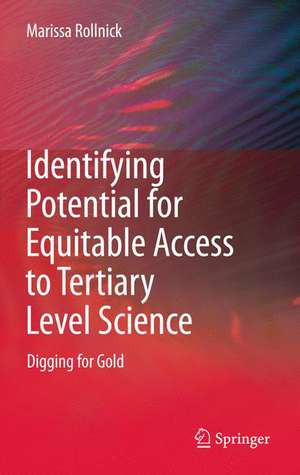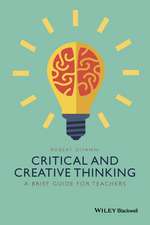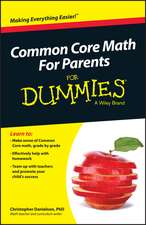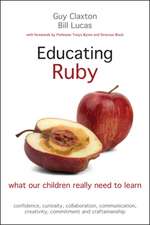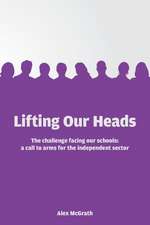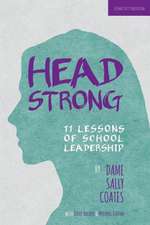Identifying Potential for Equitable Access to Tertiary Level Science: Digging for Gold
Autor Marissa Rollnicken Limba Engleză Hardback – 28 iul 2010
| Toate formatele și edițiile | Preț | Express |
|---|---|---|
| Paperback (1) | 635.31 lei 6-8 săpt. | |
| SPRINGER NETHERLANDS – 14 noi 2014 | 635.31 lei 6-8 săpt. | |
| Hardback (1) | 641.53 lei 6-8 săpt. | |
| SPRINGER NETHERLANDS – 28 iul 2010 | 641.53 lei 6-8 săpt. |
Preț: 641.53 lei
Preț vechi: 754.74 lei
-15% Nou
Puncte Express: 962
Preț estimativ în valută:
122.80€ • 133.43$ • 103.21£
122.80€ • 133.43$ • 103.21£
Carte tipărită la comandă
Livrare economică 21 aprilie-05 mai
Preluare comenzi: 021 569.72.76
Specificații
ISBN-13: 9789048132232
ISBN-10: 9048132231
Pagini: 150
Ilustrații: VII, 183 p.
Dimensiuni: 155 x 235 x 18 mm
Greutate: 0.45 kg
Ediția:2010
Editura: SPRINGER NETHERLANDS
Colecția Springer
Locul publicării:Dordrecht, Netherlands
ISBN-10: 9048132231
Pagini: 150
Ilustrații: VII, 183 p.
Dimensiuni: 155 x 235 x 18 mm
Greutate: 0.45 kg
Ediția:2010
Editura: SPRINGER NETHERLANDS
Colecția Springer
Locul publicării:Dordrecht, Netherlands
Public țintă
ResearchCuprins
Issues in Student Access.- Issues in Access Programmes.- A Survey of Programmes: Successes in Science Access.- Selection and the Identification of Potential.- Adjustment of Under-Prepared Students to Tertiary Education.- Lessons from Africa.- Research on Teaching and Learning in Access Courses.- Experimental Work in Science.- Language and Communicative Competence.- Conclusion.
Textul de pe ultima copertă
Higher education reforms internationally have led to large increases in student numbers, and thus a consequent rise in so-called ‘non-traditional’ and underprepared students who arrive at higher education institutions with a variety of educational backgrounds. The appearance of these students provides a particular challenge in the sciences where adequate grounding is crucial. One response to this challenge has been the provision of access, foundation or “second chance programmes” which operate on different models internationally. This book provides much-needed analysis from researchers in the field, examining the ways in which disadvantaged and underprepared science students learn, as well as which pedagogical approaches have been proven to be effective. The chapters explore the issues more generally before focusing on the ways in which equal opportunities to learn have been implemented in tertiary education in Southern Africa, where models include the provision of access, foundation or ‘second chance’ programmes that have opened the door to vast numbers of new students.In South Africa, where the push for equity has been strong since the demise of apartheid, programmes have been established at all tertiary institutions, with some of the most successful of these programmes based at universities characterised by a high research output. As a result, the last decade has seen a great deal of research into the effectiveness of these programmes both at a micro and macro level. This volume provides an examination of issues related to the programmes, their structure, student selection and adjustment. Issues such as the learning of these students, their communicative ability and laboratory work come under the spotlight. Although examining the issue internationally, the book draws heavily on lessons from South Africa where there has been considerable experience of such programmes.
Caracteristici
Increases understanding of the effect of disadvantage in learning science Provides insight in a key blockage in the educational pipeline Focuses particularly on science learning at the interface between secondary and tertiary level Draws on over 15 years of experience in access programmes Reviews research results in key areas of this enterprise
